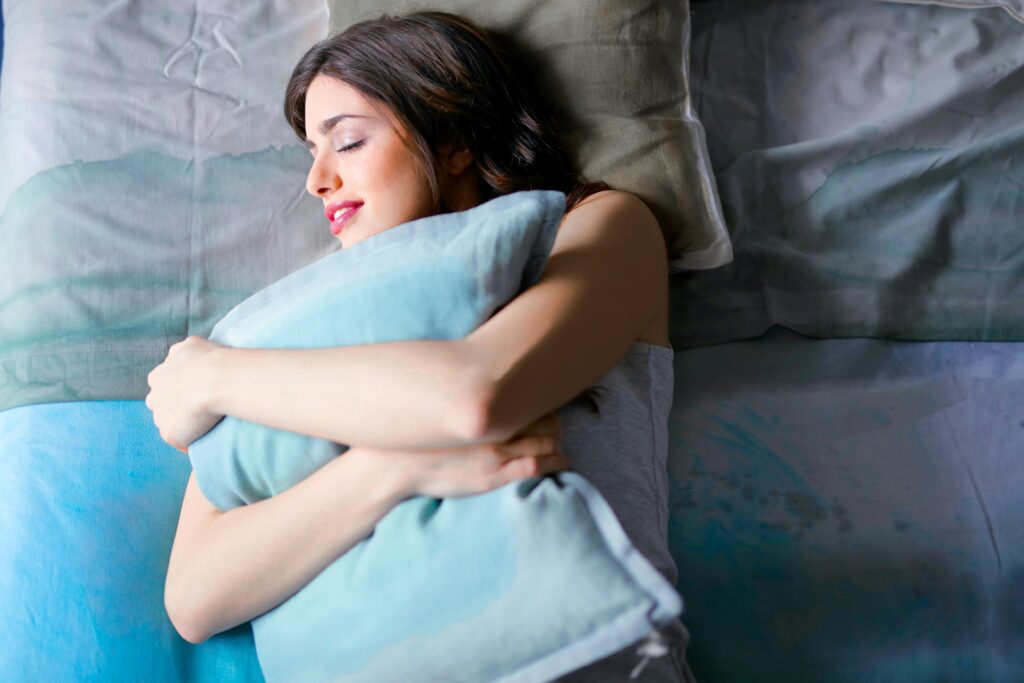Do you not get enough sleep? Wish to improve the caliber of your slumber? If your poor sleep quality is leaving you feeling worn out then this is the best spot for you because I’ll tell you how to improve sleep quality.
The hectic pace of modern life may make it challenging to unwind and take vacations. It could make obtaining a good night’s sleep on a regular basis appear unattainable. Sleep is just as vital to overall health as food and exercise.. Adequate sleep enhances your emotions, health, and cognitive abilities. Lack of sleep on a regular basis raises the risk of several diseases and conditions. Sleep is just as vital to overall health as food and exercise. These comprise heart disease, stroke, dementia, and obesity.
According to the statement of NIH sleep specialist Dr. Marishka, “Three main components make up healthy sleep,” she says. The first is your amount of sleep. Another is the quality of your sleep, or whether you obtain restful, unbroken slumber. Lastly, maintain a regular sleep routine.
Why do we need to sleep?
Dr. Maiken Nedergaard, a sleep scientist notes that people believe that sleep is just “down time,” when a fatigued brain finally gets to rest.
But it is incorrect, she asserts. Your brain functions when you sleep. Sleep helps our brain to get ready for learning, memory, and creativity.
Nedergaard and her associates found that as you sleep, the brain’s drainage mechanism flushes out poisons. Her team discovered that some of the proteins associated with Alzheimer’s disease are eliminated from mice via the drainage system. Sleep is a time for healing for everything, from blood vessels to the immune system. The body goes through some repair processes mostly, or most effectively, when you sleep.
Some suggestions to improve sleep quality.
1.Limit your exposure to blue light
2.Avoid caffeine
3.Sleep log
4.Exposure to natural light
5.Exercise
6.Reduce noise
7.Reduce tension
8.Limit midday nap
9.Consistent wakeup time
10.Suppliments
11.Avoid alcohol
12.Cozy bedding
13.Avoid eating late at night
Limit your exposure to blue light.
Nighttime light exposure lowers your levels of some hormones, such as melatonin. Melatonin promotes relaxation and deep sleep.
The worst kind of light in this sense is blue light. It is released in enormous quantities by electronic gadgets like computers and smartphones.
There are numerous well-liked techniques to limit exposure to blue light at night. These include shutting off the TV, other electronics, and bright lights two hours before going to bed.
Avoid consuming coffee in the afternoon.

Caffeine can improve energy, focus, and sports performance with just one dose. On the other hand, late coffee consumption decreased overall sleep efficiency by 7% and total sleep time by 45 minutes, according to the authors of a 2023 study review.
This could be as a result of potential detrimental effects of caffeine. While there is conflicting evidence about caffeine consumption during the day and sleep, this reliable source discusses REM sleep(stage where dreams come).
It’s a good idea to abstain from caffeine at least eight hours before bedtime just for safety’s sake. Additionally, avoid taking caffeine supplements 13 hours before going to bed.
Stick to decaffeinated coffee if you find yourself needing a cup in the late afternoon or evening.
Maintain a Sleep Log.
Maintaining a daily sleep journal allows you to track the quality of your sleep and identify factors that might be helping or limiting our ability to fall asleep. Your sleep journal can be a useful tool for tracking the effectiveness of any new sleep schedule or other sleep hygiene adjustments you are making. Keeping track of sleep disruptions when you wake up will help you understand your general state of sleep health.
In the end, keeping a sleep journal encourages awareness and proactive control of sleep patterns, which improves the quality of sleep and general wellbeing.
Spend 30 Minutes Exposure to Natural Light.
The body’s internal clock is modulated by exposure to light. Since sunlight has a strong influence, try to take advantage of daylight by walking outside or opening the windows or blinds to let in some fresh air. Getting some natural light early in the day may help you restore your circadian rhythm. If you are not able to utilize natural light, you may want to talk to your doctor about utilizing a light treatment box.
This exposure increases melatonin release in the evening, which facilitates sleep, and inhibits melatonin production during the day, increasing alertness and activity. Exposure to natural light also raises serotonin levels, which improve mood and help control sleep patterns. All things considered, regular sun exposure helps regulate your body’s internal clock, which promotes better sleep, increased awareness during the day, and a more predictable sleep-wake cycle.
Exercise every day.
Frequent exercise—even just 20 minutes a day—can greatly enhance the quality of your sleep in a number of ways. First of all, physical activity encourages the release of endorphins, which lessen tension and anxiety—two typical conditions that can disrupt sleep. Second, exercise causes the body’s temperature to rise; the ensuing drop in temperature can aid in falling asleep. Thirdly, by strengthening circadian rhythms, regular exercise over time can control the cycle of sleep and wakefulness.
Exercise is also known to enhance general health and lower the risk of disorders that interfere with sleep, such as restless leg syndrome and sleep apnea. All things considered, consistent exercise improves overall sleep quality and encourages deeper, more restorative sleep.
Reduce Noise
Reducing noise in the bedroom is one of the most important steps towards making it sleep-friendly.If local noise sources are unavoidable, you might be able to muffle their sounds with a fan or white noise machine. Earplugs or headphones are other tools you might employ to drown out the sounds that keep you up at night.
Regular nighttime noise exposure can also have an impact on the quality of REM and deep sleep, which are essential for maintaining emotional stability and cognitive performance. Through the use of white noise machines or soundproofing techniques, people can create a quieter sleep environment that allows for more uninterrupted sleep cycles and a more restorative and rejuvenating night’s sleep.
Reduce tension
Your to-do list is miles long, and your bills are piling up. Problems from the day can still come up at night. Stress is one of the triggers. It sets off a chain reaction of molecules known as fight-or-flight that oppose sleep. Before going to bed, give yourself some time to relax. Learning about the relaxation response can help improve the quality of your sleep and reduce anxiety during the day. To help you relax, try doing deep breathing exercises. Inhale deeply and calmly, then exhale.
Limit your midday naps.
By consolidating evening sleep and encouraging deeper, more restorative sleep, limiting naps during the day can improve the quality of sleep. The body’s normal sleep-wake cycle, or circadian rhythm, can be upset by daytime naps, particularly if they are taken too late in the day or for an extended period of time. This may result in lighter, less comfortable sleep at night or trouble falling asleep at all. People can develop a stronger sleep drive and find it easier to fall asleep faster and stay in deeper phases of sleep at night by cutting back on or giving up daytime naps. This modification promotes a more regular sleep pattern over time and helps to enhance overall sleep quality.
Establish a consistent wake-up time.
If you are waking up at different times every day, it is very impossible for your body to adjust to a healthy sleep schedule. Even on the weekends and other days when you might be tempted to sleep in, set a wake-up time and stick to it. This rhythm can be upset by irregular sleep schedules, which can result in trouble falling asleep, interrupted sleep, and generally lower-quality sleep. Even on weekends, keeping a consistent wake-up time helps your body’s natural sleep-wake cycle, which gradually encourages deeper and more rejuvenating sleep patterns.
Utilize melatonin supplements.

Melatonin supplements work by balancing the body’s circadian rhythm, which tells the brain when it’s time for sleep. This helps to enhance the quality of sleep. The pineal gland naturally produces melatonin, a hormone that encourages relaxation and the onset of sleep, in reaction to darkness. People can improve the quality of their sleep, especially those who are shift workers, travelers adjusting to different time zones, or those who suffer from insomnia, by taking melatonin supplements.
Avoid consuming alcohol.
Your hormone levels and quality of sleep can be adversely affected by having a few drinks at night. This is due to the fact that alcohol is believed to exacerbate or cause snoring, sleep apnea, and irregular sleep patterns. Additionally, it alters the generation of melatonin at night, which is crucial for maintaining your body’s circadian rhythm. Although having a drink at dinner or when out in the evening isn’t always bad, try to avoid drinking too close to bedtime on most occasions.
Purchase a pillow, mattress, and bed that are cozy.
Sleep quality is also influenced by beds. For instance, using subpar bedding may exacerbate lower back pain, which may make it more difficult to get a good night’s sleep.
A 2021 study review suggests that medium-firm mattresses could be a viable option for both comfort and preventing back pain. The ideal bedding and mattress for you are, nevertheless, quite personal choices. When choosing a new bedding set, consider your particular preferences.
Researchers looked reviewed nine studies on sleep quality using different bedding and sleepwear materials. It includes cotton, polyester, wool, linen, and polyester blend. It has been discovered that under various circumstances, different materials enhance sleep. For instance, in mild weather, adults seemed to sleep better with wool. Whereas, in warm weather, young adults seemed to sleep better with linen.
Thus, changing your bedding or mattress if it hasn’t been done in a while can be a simple, albeit pricey, solution.
Avoid eating anything late at night.
Reducing digestive pain might enhance the quality of sleep by minimizing food consumption prior to bed. Eating large meals close to bedtime can result in reflux, bloating, and indigestion. It makes difficult to get to sleep and remain asleep. They may also cause blood sugar to fluctuate, which might alter hormone release and interfere with sleep patterns. Eating a well-balanced dinner early in the evening gives your body time to process the food. Staying away from heavy, spicy foods at night will help you sleep better.
Personal Experience & Research:
For years, I struggled with poor sleep, waking up feeling groggy despite spending 8 hours in bed. It wasn’t until I implemented a consistent bedtime routine, including cutting out caffeine after 3 p.m. and using blue light-blocking glasses before bed, that my sleep quality improved significantly. Research backs this up—studies show that reducing screen time before bed and creating a calming pre-sleep routine can enhance sleep quality. The National Sleep Foundation also reports that maintaining a regular sleep schedule, even on weekends, helps stabilize your circadian rhythm, making it easier to fall asleep and wake up feeling refreshed.
What is the sleep rule 10-3-2-1-0?
This is one method to help you sleep better. Avoid caffeine starting 8 hours before going to sleep. Limit your drink and food intake three hours before bed. Try to unwind and stay away from mentally demanding activities two hours before bed. Put all of your electronics away an hour before going to bed.
RECOMMENDED ARTICLE: Anti aging food>https://healthprotecto.com/anti-aging-food/

